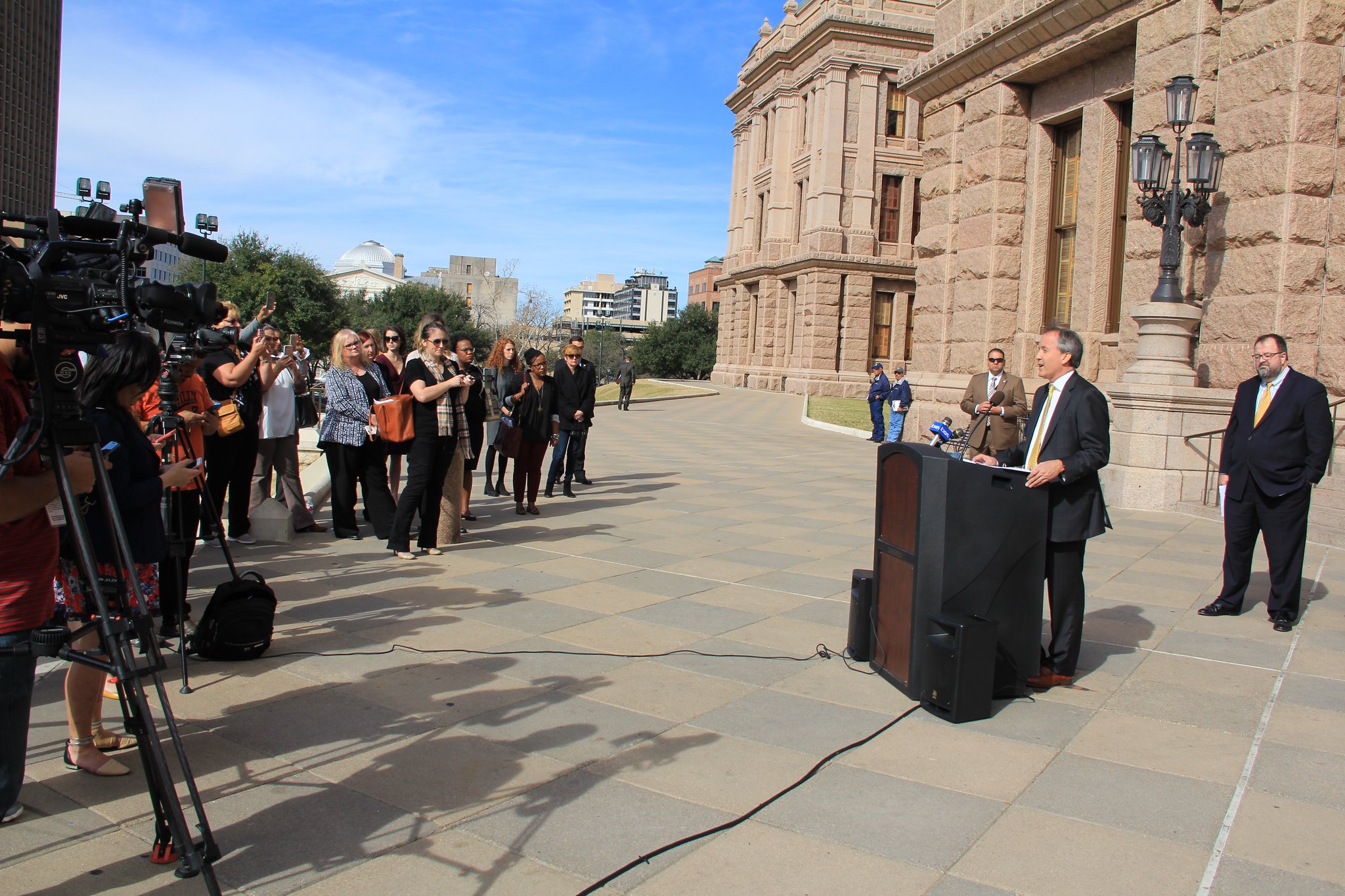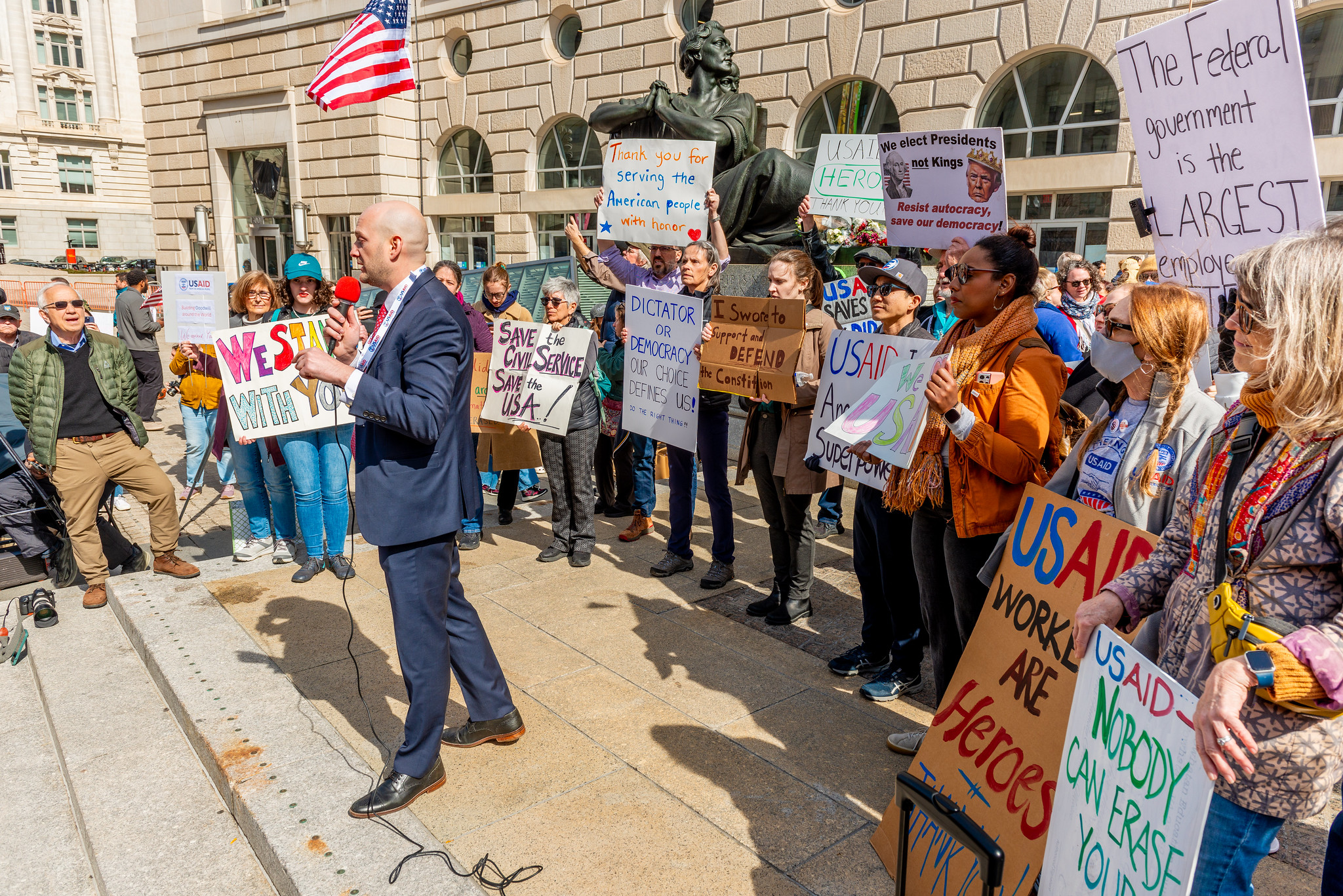Supreme Court Holds No Political Question in Zivotofsky, Remands for Decision on the Merits
This morning the Supreme Court released its opinion in Zivotofsky v. Clinton. In an 8–1 decision, it reversed the lower courts' dismissal of Menachim Zivotofsky's suit to have "Jerusalem, Israel" listed as his place of birth. The Court held that that the political-question doctrine did not bar Zivotofsky's suit. Chief Justice Roberts wrote the majority opinion.
Published by The Lawfare Institute
in Cooperation With

This morning the Supreme Court released its opinion in Zivotofsky v. Clinton. In an 8–1 decision, it reversed the lower courts' dismissal of Menachim Zivotofsky's suit to have "Jerusalem, Israel" listed as his place of birth. The Court held that that the political-question doctrine did not bar Zivotofsky's suit. Chief Justice Roberts wrote the majority opinion. Justices Sotomayor and Alito each wrote separately to concur, while Justice Breyer dissented, finding that the case presented a nonjusticiable political question.
Curt's coverage of the Supreme Court's cert. grant last May provides a thorough factual background. (In addition, SCOTUSblog has the argument preview and recap.) The short version is that in 2002, Congress passed a law providing that "[f]or purposes of the registration of birth, certification of nationality, or issuance of a passport of a United States citizen born in the city of Jerusalem, the Secretary shall, upon the request of the citizen or the citizen’s legal guardian, record the place of birth as Israel" (§ 214(d)). President Bush issued a signing statement objecting to this and other Jerusalem-related provisions of the bill. Shortly after the law was enacted, Menachem Zivotofsky was born in Jerusalem to American parents. His parents requested that his passport list "Jerusalem, Israel," but the State Department denied the request, pursuant to a long-standing policy of only listing "Jerusalem" for Americans born there. Zivotofsky sued, and both the D.C. district and circuit courts dismissed the suit on political-question grounds.
Chief Justice Roberts began by setting out the conditions for a political question: "where there is a textually demonstrable constitutional commitment of the issue to a coordinate political department; or a lack of judicially discoverable and manageable standards for resolving it" (internal quotation marks omitted). He held that the lower courts had "misunderst[ood] the issue presented. Zivotofsky does not ask the courts to determine whether Jerusalem is the capital of Israel. He instead seeks to determine whether he may vindicate his statutory right, under §214(d), to choose to have Israel recorded on his passport as his place of birth." To demonstrate that this latter issue can be resolved with "judicially discoverable and manageable standards," Chief Justice Roberts catalogued the various traditional constitutional arguments made by both parties. Having concluded that Zivotofsky's suit was not barred by the political-question doctrine, Chief Justice Roberts declined to address the merits. Recognizing that the Court was "without the benefit of thorough lower court opinions to guide [its] analysis of the merits," he remanded the case for a decision on the merits.
Justice Sotomayor concurred in part and concurred in the judgment. She began with a lengthy analysis of the six factors the Court put forward in Baker v. Carr to determine the existence of a nonjusticiable political question. She grouped the factors into three categories: (1) where the Constitution textually commits the resolution of an issue to one of the political branches (Baker's first factor), courts lacks authority to decide; (2) where there are no "judicially discoverable and manageable standards" for resolving the issue, or where resolution requires an "initial policy determination" (Baker's second and third factors), courts lack the ability to decide; and (3) where judicial resolution implicates various prudential concerns (Bakers fourth, fifth, and sixth factors), courts should abstain from deciding the issue. Justice Sotomayor noted that this third category could, albeit rarely, be enough to render a case nonjusticiable -- for example, "if Congress passed a statute . . . purporting to award financial relief to those improperly 'tried' of impeachment offenses." More generally:
In my view, it is not whether the evidence upon which litigants rely is common to judicial consideration that determines whether a case lacks judicially discoverable and manageable standards. Rather, it is whether that evidence in fact provides a court a basis to adjudicate meaningfully the issue with which it is presented. The answer will almost always be yes, but if the parties’ textual, structural, and historical evidence is inapposite or wholly unilluminating, rendering judicial decision no more than guesswork, a case relying on the ordinary kinds of arguments offered to courts might well still present justiciability concerns.Justice Sotomayor noted, however, that the Court of Appeals had decided that Zivotofsky's case was a political question purely on textual-commitment (Baker category one) grounds. Because she found no such textual commitment, Justice Sotomayor concurred in the majority's judgment. (Justice Sotomayor's opinion, unlike Chief Justice's Roberts, presumably leaves it open for the lower courts to again find Zivotofsky's suit nonjusticiable as a political question, this time on Baker category three grounds.) Justice Alito concurred in the judgment. He emphasized that "[t]his case does not require the Judiciary to decide whether the power to recognize foreign governments and the extent of their territory is conferred exclusively on the President or is shared with Congress." He noted that Congress and the President each had a "measure of authority" to determine the contents of passports and overseas birth certificates and that the narrow question of determining which branch's authority prevailed in this case was not a political question. Justice Breyer dissented. Concurring in that part of Justice Sotomayor's opinion analyzing Baker, Justice Breyer nevertheless concluded that, for "[f]our sets of prudential considerations, taken together," Zivotofsky's suit presented a nonjusticiable political question. First, the issue in the case "arises in the field of foreign affairs," power over which the Constitution primarily delegates to the political branches. He emphasized that foreign relations decisionmaking is "highly political," "delicate," "complex," and "typically lies well beyond the experience or professional capacity of a judge." Second, "if the courts must answer the constitutional question before us, they may well have to evaluate the foreign policy implications of foreign policy decisions." Although he recognized that the issue in the case was in one sense purely administrative (passport labeling), "in the Middle East, administrative matters can have implications that extend far beyond the purely administrative." Third, Justice Breyer argued that the Zivotofsky's interest was largely ideological, rather than the "kind of interest, e.g., an interest in property or bodily integrity," which can sometimes override the political-question doctrine. And fourth, "insofar as the controversy reflects different foreign policy views among the political branches of Government, those branches have nonjudicial methods of working out their differences." For an interesting thought on what Zivotofsky means for judicial involvement in foreign affairs, see Peter Spiro's brief post on Opinio Juris.
Alan Z. Rozenshtein is an Associate Professor of Law at the University of Minnesota Law School, Research Director and Senior Editor at Lawfare, a Nonresident Senior Fellow at the Brookings Institution, and a Term Member of the Council on Foreign Relations. Previously, he served as an Attorney Advisor with the Office of Law and Policy in the National Security Division of the U.S. Department of Justice and a Special Assistant United States Attorney in the U.S. Attorney's Office for the District of Maryland. He also speaks and consults on technology policy matters.





